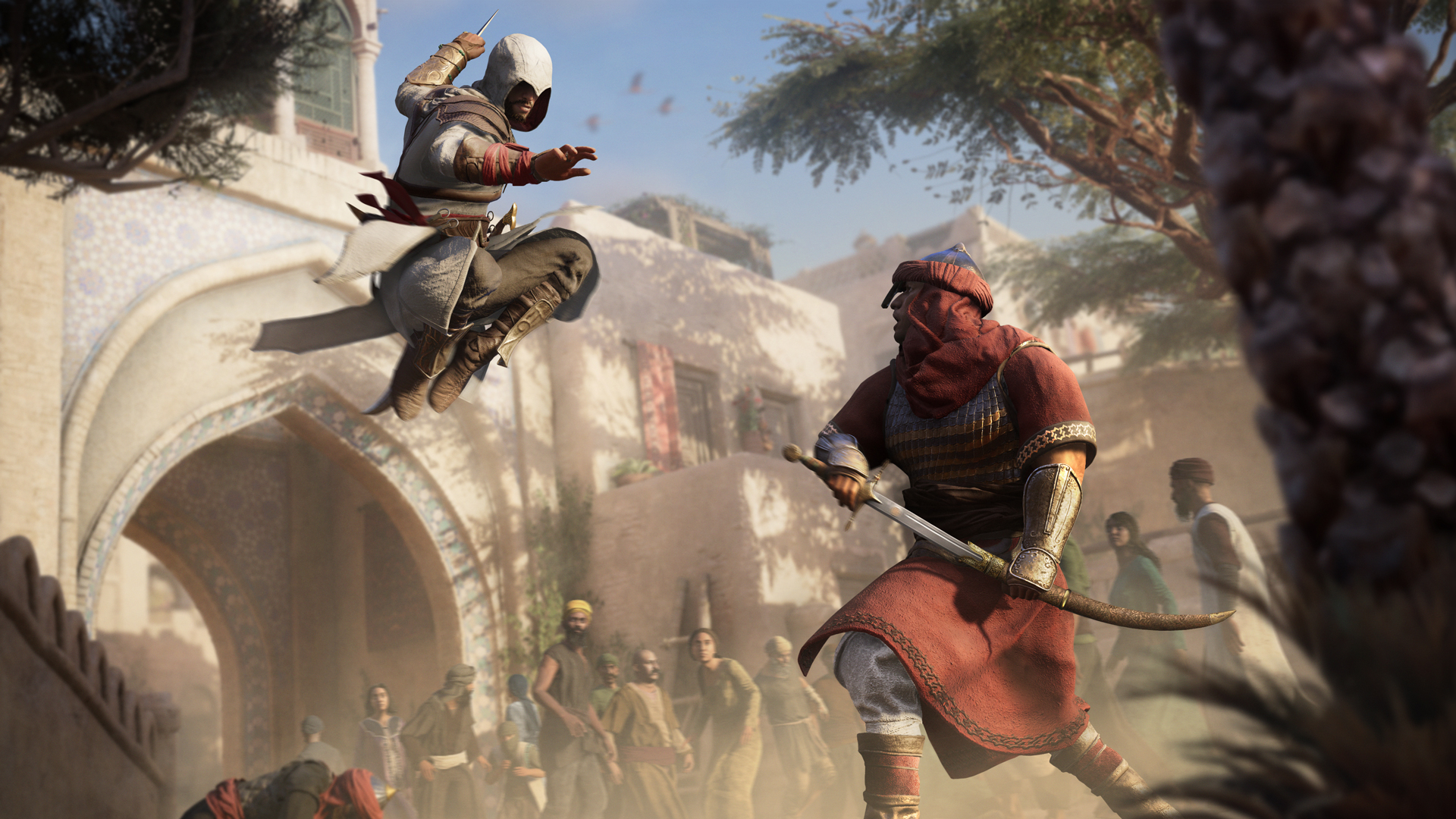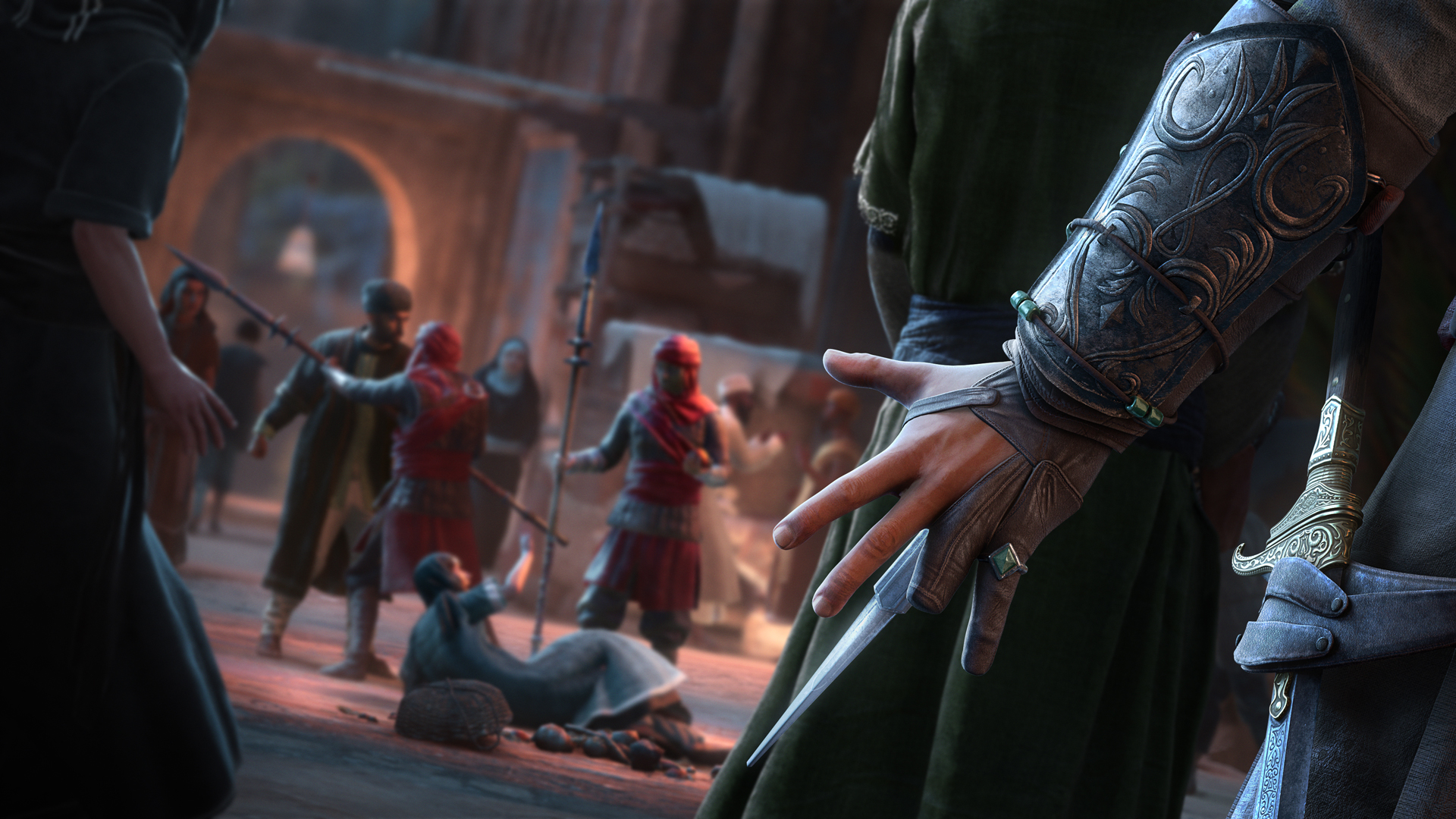
Assassin's Creed Mirage looks every bit the game I've been waiting almost a decade to play. Ubisoft may be presenting this stealth-action game as a homage to the original Assassin's Creed (desaturated visual filter and all), but I think it's fair to say that Mirage is effectively giving us a glimpse at an alternate-history through the Animus. Where would this series be today had Ubisoft not stretched its ambitions to breaking point with Assassin's Creed Unity, its failures fuelling Syndicate to fall short of sales expectations a year later.
I like to imagine that Ubisoft would have continued down the path it started carving in 2014, pushing for denser playspaces with more intuitive opportunities for creative problem solving. Instead, the publisher broadened the scope of the open world, diluted social stealth, reduced the reliance on parkour, and made the hidden blade more of a relic than a tool. Assassin's Creed Origins outlined a new formula, an action-RPG with all the trappings that the genre has to offer – more complex combat systems, enemies who leak damage numbers, and a wider focus on loot, grinding and busywork. It's proven to be a popular change of pace, but not what I ever wanted from Assassin's Creed as a whole.
Back to basics


Assassin's Creed Mirage is tighter in scope but broader in appeal
I have to admit that while I'm eager to see what the talent development teams at Ubisoft Quebec and Ubisoft Montreal are able to create with the power of the PS5 and Xbox Series X behind them, I'm a little disheartened by how Assassin's Creed Red and Assassin's Creed Hexe have been positioned. These upcoming Assassin's Creed games are not only open-world RPGs, but already framed as the next "flagship" entries to the series, making it seem like Mirage is a one-off, rather than a proving ground for a more all-encompassing embrace of what made this series so beloved to begin with.
Red and Hexe – the former offering a trip to feudal Japan; the latter still a mystery – will inevitably be expansions of the fundamentals put forth by Origins, Odyssey, and Assassin's Creed Valhalla. Adventures with larger worlds which will once again require 100 of my precious hours for completion. Truth be told, I'd be content with journeys that can conclude in a fifth of that; smaller stories that respect my time and make better, more imaginative use of more condensed cityscapes. Sure, Valhalla had truly beautiful horizons, but Unity had a crowd system that could pack some 30,000 NPCs onto the screen simultaneously – maybe the PS5 and Xbox Series X could do what the PS4 and Xbox One never could and actually handle that sort of expansive stress of the system. We'll likely never know.

"I'd like to believe that the success of Assassin's Creed Mirage could prove to be disruptive"
For those who have longed for Assassin's Creed to once again place an emphasis on stealth-action, Mirage could be the last hurrah. Ubisoft has positioned this experience as a 15-20 hour journey, with an emphasis on slick animations and a refined set of assassin-focused combat systems – not to mention the return of Black Box quests, large-scale missions which can be carried out in a multitude of ways. I find all of this infinitely more interesting than the idea of traipsing around another endless open-world, but the early announcements of Red and Hexe indicate that Ubisoft has a clear action-RPG vision for the long-term future of the franchise.
I'd like to believe that the success of Assassin's Creed Mirage could prove to be disruptive. But if I'm being realistic, I know this is likely my last chance to enjoy a pure stealth-action adventure – a late celebration of Assassin's Creed's 15th anniversary – before the series shifts its focus back to larger, sparser worlds. Assassin's Creed Valhalla is, after all, the best-selling installment in the franchise, and I struggle to see Mirage creating the same degree of groundswell as an open-world adventure which grossed over a billion dollars. We can always dream though.
Assassin's Creed Mirage is one of the upcoming Ubisoft games with a 2023 release date, with the adventure set to launch on PC, PS5, PS4, Xbox Series X, and Xbox One on October 12.







